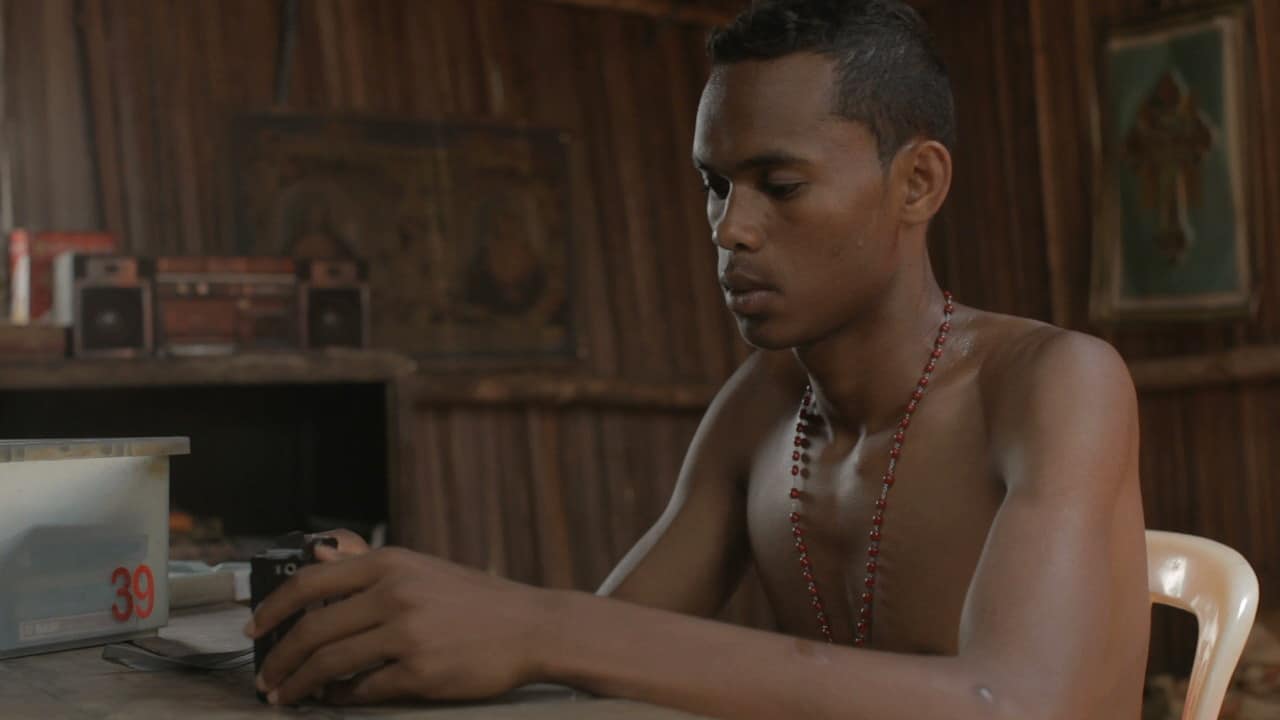Upon its initial release in late 2018, Indonesian arthouse director Garin Nugroho's “Memories Of My Body” made, to understate things, quite the splash. A story revolving around a gay teenager embracing his sexuality through a combination of dance and crossdressing was always going to be controversial in the typically heavily conservative and homophobic authority in Indonesia (the fact that the movie includes a kiss between two men is itself quite the radical image, even if the moment is obscured by a plastic cover and heavy rainfall), but the response from Indonesia has been particularly polarizing. On one hand, the film has received stellar reviews from local and international critics alike (qualifying for many international festivals and being Indonesia's submission for best foreign-language film at the 92nd Academy Awards), as well as positive coverage by local media such as CNN Indonesia. On the other hand, the film was the subject of a colossal backlash and censorship from the Indo government and a portion of Indo's conservative demographic, resulting in petitions and protests due to its LGBTQ content, and subsequent near-nationwide banning of the film. While the movie did screen in a small number of cinemas and received general acclaim amongst more tolerable and progressive demographics, Nugroho expressed his anger and disappointment with the backlash. However, the polarising reactions to “Memories of My Body”, while frustrating, may in retrospect prove to be a testament to the power of filmmaking as a way to challenge oppressive views and governments with empathetic stories and the moving image.
“Memories Of My Body” had its world premiere as part of Queer East Film Festival
A tale of four chapters, “Memories Of My Body” follows orphan boy Wahyu Arjuno through the story of his childhood and adolescence, as he discovers his own homosexuality, struggles to deal with the traumas of his early life, and finds identity and liberation through Lengger, a highly spiritual, sensual, and symbolic Javanese dance that requires the performer to cross-dress.
What struck me immediately after watching “Memories Of My Body” at a recent London showing hosted by the Queer East Film Festival, was how much it reminded me of Barry Jenkins' beloved 2016 best picture winner, “Moonlight”. Both are movies that almost episodically guide the audience through the sexual awakening and eventual self-acceptance of a troubled young boy who has to carve his own identity in a world that seemingly hasn't made room for him. Perhaps more importantly, beyond the similarity of the premise and structure, the two movies share, very possibly by way of direct influence, a tone and execution that forms the best parts of Arjuno's story. Told with great sensitivity and shot with gorgeously framed, bold images that wouldn't look out of place at a photography exhibition, “Memories of My Body”, like “Moonlight” is a beautiful and deftly executed LGBTQ coming of age story. It's by no means a carbon copy of Jenkin's work though, with Nugroho adding his own flourishes that give the work a unique creative flavor.
One of his most inspired choices is having the character of Arjuno himself (played by Rianto, the famed Lengger dancer whom the movie and central character is largely based on) introduce each chapter to the audience via a mix of spoken word poetry and traditional Lengger dance (which of course proves to be an integral element of the narrative). During these brief interludes, Arjuno performs passionate monologues detailing his relationship with the self, but his physical performance is what is really magnetic here, as he fluidly switches between graceful, flowing movements to more tribal and erratic outbursts. Another element of the film that really makes an impression is just how culturally dense it is, from the aforementioned traditional dance-heavy segments to various other cultural norms, festivities, fashion, as well as references to deeply-rooted Javanese titles and roles such as gemblak and warok. Granted, this might leave non-Indonesian audiences a little lost here and there, but ultimately the choice to establish a level of authenticity and validity to the narrative without the worry of alienating international audiences brings a refreshing truthfulness to the story, and actually makes it more fascinating to watch than if I was to understand each and every cultural reference.
Muhammad Khan brings many subtleties to his role as a teenage Juno (the “era” of his life that features most prominently in the movie), wonderfully portraying a quite stoic character who is suppressing a lot of trauma. Early in Arjuno's story, he is conditioned by his legal guardian, an aunty, to punish himself by sticking himself in the fingers with a sewing needle. Later in his life, this manifests again and again as his guilt and shame over his burgeoning sexuality causes him to self-harm. Khan plays the character so straight-faced for the majority of the movie that it pays off big time when it is time to to release emotional baggage.
Ultimately, “Memories Of My Body” is, within the context of Indonesian cinema, a boundary-pushing political statement on the aggressive conservatism of Indonesia's governing body, as well as a tender and personal coming of age story about a boy learning about his place in the world.















